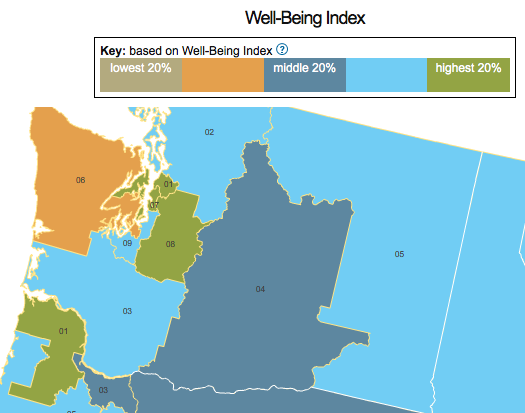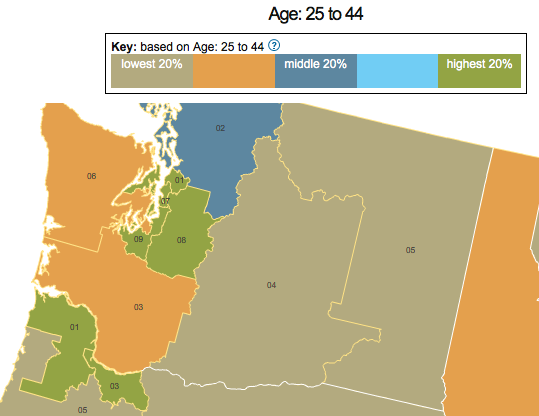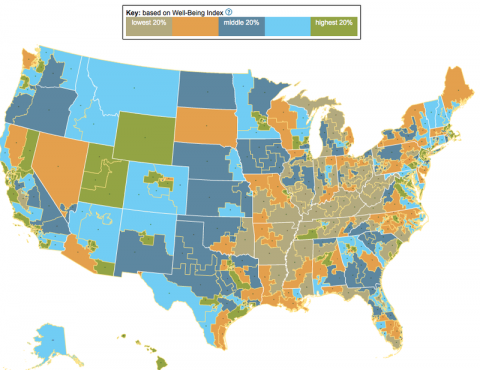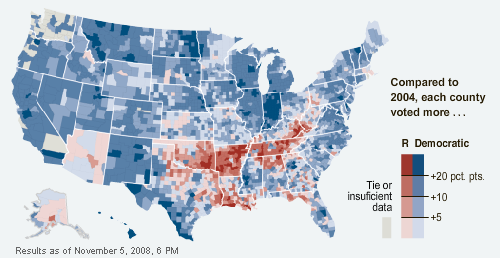Showing that great minds think alike, my friend Steve also noticed the new national survey of well-being from Gallup. Though he only seems to have read an article about it, and based on that he wonders:
» Would Washington be the “Happiest†State if Seattle Was Elsewhere?.
Research from Gallup puts Washington State near the top of states
rated for happiness.At the same time, Seattle is ranked by Business
Week as one of America’s most “miserable†cities.
… one can’t help but wonder how the state would rank if Seattle
was not a factor.Maybe if the residents chose to fund schools and cops instead of
monorails, trains, and nutty eco-nanny programs to eliminate plastic
bags, the people would be happier.
He could have found his answer quite easily by actually visiting the survey site (a pretty remarkable survey indeed: talking to a thousand people a day, every day, asking people about their well-being).

Looks like they’re pretty miserable in Portland, too. Must be the mass transit, bike lanes, zoning policies, crap like that.
Especially interesting: it’s people in their prime family-raising years who are made especially miserable by all those pinko policies:

Meanwhile the national map…

…can’t but remind you of another that we’ve seen recently:

(No, the well-being survey was not done after the election–mostly before. It started in January 2008 and the data currently presented is aggregated through December. The survey’s slated to continue for 25 years. Methodology here.)
I’m sure that profound well-being in Appalachia is a result of their excellent mass-transit systems, top-notch education, and progressive environmental policies.
Steve’s right: the correlations here are obvious.
Comments
One response to “Seattle’s a Happy Place! Outstate Washington, Appalachia: Not So Much”
It would be interesting to compare the factors that people thing makes them happy and/or satisfied to the factors that Business Week considers important.
How much of an overlap would there be?
I doubt if there would be much.